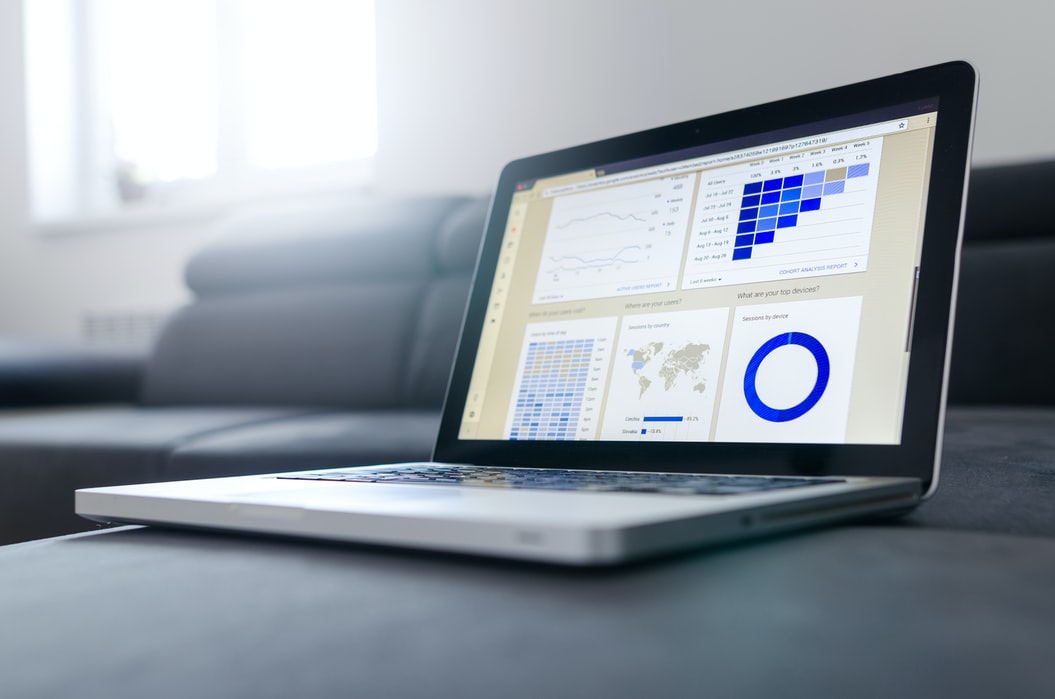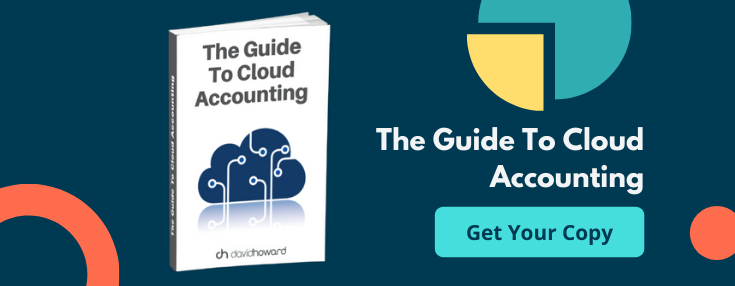How Much Does A Cloud Accountant Cost?

Many SMEs are making the switch to cloud-based accounting systems, particularly as HMRC is gradually implementing its "Making Tax Digital" programme .
Both self employed businesses and landlords with a turnover of over £10,000 will need to keep digital records and submit information to HMRC every 3 months. There's an array of online platforms to choose from, including Xero, Sage One, and QuickBooks, each of which will help you to streamline your bookkeeping processes. However, it's also a good idea to hire a cloud accountant to help you to handle your company's finances and ensure your liabilities are met correctly. So, how much do cloud accountants charge and what can they do for you?
What Is A Cloud Accountant?
Cloud accountants are professional accountants who make the most of technology in order to provide affordable and streamlined services. They use the latest online platforms and systems to provide clients with digital accountancy services, produce up-to-the-minute reports, and spot significant trends and potential issues rapidly.
What Do They Usually Charge SMEs?
Different cloud accountants charge different rates. Some bill their clients by the hour while others charge fixed monthly subscriptions for contracted services. The amount that you're charged will depend upon your company's size and the services that you need. Charges vary depending on a variety of different factors such as the number of transactions to be processed, whether any in house staff or subcontract book-keeping staff look after any of the book-keeping, the detailed reporting requirements and advisory services required.
For small businesses a standard accountant could charge anything from say £50 to £1,000 per month, but cloud accountants tend to charge less than standard accountants, as their overheads are lower. Also, software solutions can help dramatically reduce the amount of time involved in processing transactions therefore cut cost. Systems can also be set up to automate reporting and therefore eliminate the need to re-key information. Online accountants can also work with a ‘pyramid staff structure’ where less costly staff perform as much of the work as possible and therefore help to minimise the costs and provide higher qualified staff as required which the business would not otherwise be able to afford.
However, when getting quotes, make sure that you only approach reputable providers with a proven track record, and clarify exactly which services are and aren't included in any package that you're offered.
Will Using A Cloud Accountant Provide You With Value For Money?
You may be wondering whether it's worth paying for the services of a professional accountant on top of the fees that you're paying for the use of your digital accountancy software. While it is possible and legal for you to prepare your company's accounts and tax returns yourself, using a cloud accountant has many advantages.
For example:
- A cloud accountant can help you to develop a paperless, streamlined system, making the whole process hassle-free.
- Your company accounts and tax returns will be more likely to be accurate, minimising the chances that you'll pay too much tax or incur any fines.
- Your cloud accountant will be able to identify any tax deductions or reliefs that you could be benefiting from, so you can minimise your tax bill.
- You and your staff will be free to focus on other things, enabling your company to grow more rapidly.
- You won't need to hire dedicated accounting staff and provide them with office space or equipment, as you'll have a team of external experts at hand.
- You don’t have to recruit or train staff.
- You have no worries regarding cover for sickness and holidays and continuity benefits against a situation where a staff member left at short notice.
As a result, hiring a cloud accountant could provide you with an excellent return on investment. To find out more about the benefits of using a professional cloud accountant, download our Complete Guide To Outsourcing Bookkeeping free of charge.
Image Source: Unsplash
Posts by Topic
- Accounting Services (58)
- Tax Services (57)
- Tax (50)
- Smart Accounting Services (34)
- Tax Return (29)
- Corporation Tax (26)
- COVID-19 (24)
- sme accounting (24)
- Clients (19)
- Switching Accountants (16)
- VAT (15)
- Making Tax Digital (13)
- News (13)
- Xero (13)
- Dividend Tax (12)
- bookkeeping (12)
- Payroll (10)
- Cloud Software (9)
- Capital Gains Tax (6)
- Inheritance Tax (3)
- Savings (3)
- Benefits In Kind (Employee Benefits) (2)
- Case Studies (2)
- Stamp Duty (2)
- Trust (2)
- Trust Account (2)
- GDPR (1)
- Insider (1)
- Lifetime ISA (1)
- Retirement Savings (1)
- Wear & Tear Allowance (1)

